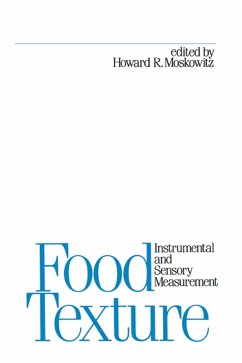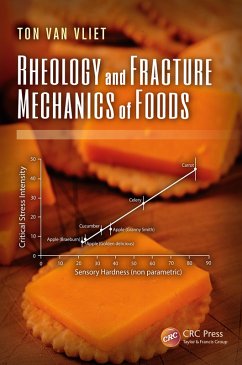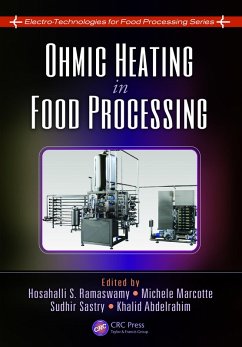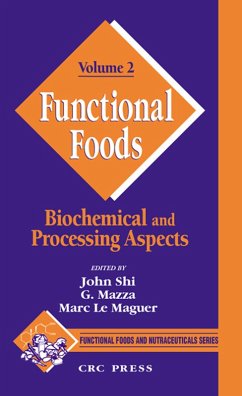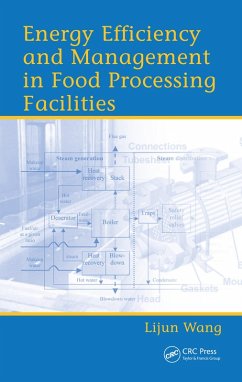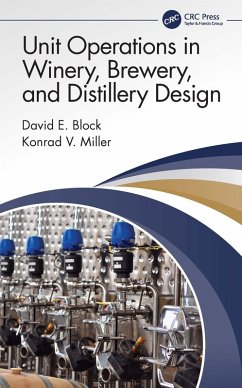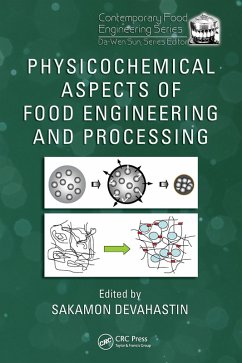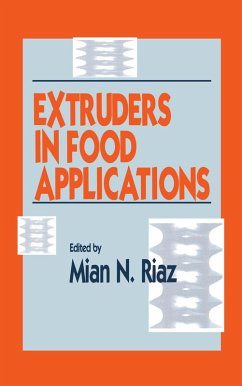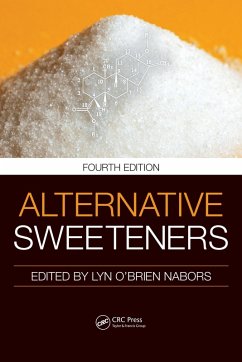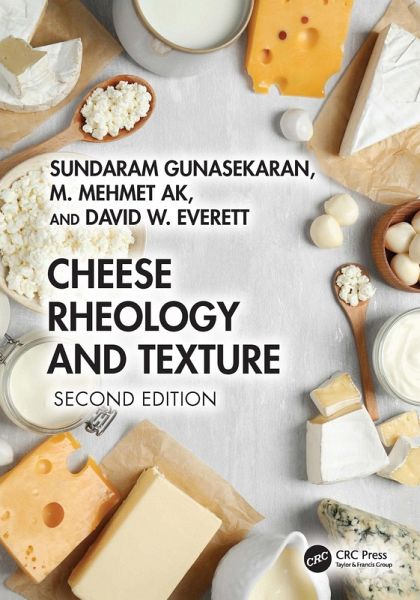
Cheese Rheology and Texture (eBook, PDF)
Versandkostenfrei!
Sofort per Download lieferbar
186,95 €
inkl. MwSt.
Weitere Ausgaben:

PAYBACK Punkte
93 °P sammeln!
Research on the rheological and textural aspects of cheeses has continued to progress, with new measurement methods, and technological and physiochemical insights having been developed since the publication of the first edition over 20 years ago. The second edition of Cheese Rheology and Texture continues to bring together essential information on the rheological and textural properties of cheese and state-of-the-art measurement techniques, including the most up-to-date findings.This comprehensive resource begins with an overview of cheesemaking technology and provides a detailed description o...
Research on the rheological and textural aspects of cheeses has continued to progress, with new measurement methods, and technological and physiochemical insights having been developed since the publication of the first edition over 20 years ago. The second edition of Cheese Rheology and Texture continues to bring together essential information on the rheological and textural properties of cheese and state-of-the-art measurement techniques, including the most up-to-date findings.
This comprehensive resource begins with an overview of cheesemaking technology and provides a detailed description of fundamental rheological test methods, including uniaxial testing and fracture mechanics, the theory and applications of linear viscoelastic methods (dynamic testing), and nonlinear viscoelasticity of cheeses. The book focuses on mechanics in the examination of cheese texture while emphasizing measurement methods in the discussion of cheese meltability and stretchability. Finally, it addresses the effects of various factors, such as the composition and properties of milk, cheesemaking procedures, and post-manufacturing processes, on the structure of cheese and the impact on functional properties.
Key Features:
Summarizing the vast literature available on the subject and including the most current developments, Cheese Rheology and Texture, Second Edition continues to help those in the dairy industry and academia choose the proper techniques to measure properties that directly relate to food applications and ensure that cheese in their formulations will function as intended.
This comprehensive resource begins with an overview of cheesemaking technology and provides a detailed description of fundamental rheological test methods, including uniaxial testing and fracture mechanics, the theory and applications of linear viscoelastic methods (dynamic testing), and nonlinear viscoelasticity of cheeses. The book focuses on mechanics in the examination of cheese texture while emphasizing measurement methods in the discussion of cheese meltability and stretchability. Finally, it addresses the effects of various factors, such as the composition and properties of milk, cheesemaking procedures, and post-manufacturing processes, on the structure of cheese and the impact on functional properties.
Key Features:
- Includes new and updated figures and tables
- Presents new studies and developments in measurement methods, instruments used, and data analysis techniques
- Includes rearranged and updated chapters with improved clarity and the latest research
Summarizing the vast literature available on the subject and including the most current developments, Cheese Rheology and Texture, Second Edition continues to help those in the dairy industry and academia choose the proper techniques to measure properties that directly relate to food applications and ensure that cheese in their formulations will function as intended.
Dieser Download kann aus rechtlichen Gründen nur mit Rechnungsadresse in A, B, BG, CY, CZ, D, DK, EW, E, FIN, F, GR, HR, H, IRL, I, LT, L, LR, M, NL, PL, P, R, S, SLO, SK ausgeliefert werden.




